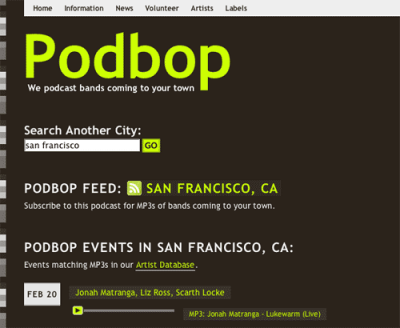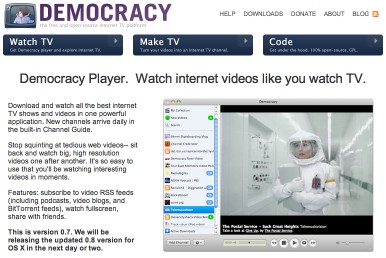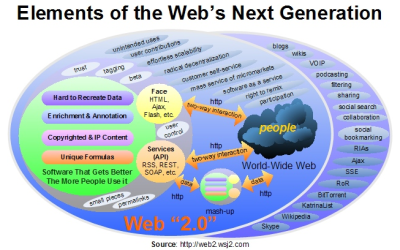DER SPIEGEL 28/2005 - 11. Juli 2005
URL:
http://www.spiegel.de/spiegel/0,1518,364508,00.html
Internet
Jagd auf die Gepardenforelle
Von Klaus-Peter Kerbusk
Google beherrscht den Markt der Internet-Suchmaschinen. Doch nun wollen Microsoft und Yahoo aufholen. Es geht um die Neuordnung eines Milliardenmarkts.
Lawrence Page, 32, und Sergej Brin, 31, scheinen immer nur Gutes im Sinn zu haben. Ihre Angestellten können während der Arbeitszeit Tischtennis spielen, bei Yoga entspannen und sich in der Edelkantine von Spitzenköchen fünfgängige Menüs servieren lassen - alles kostenlos. Die beiden Jungunternehmer haben ihrer Firma das Motto verpasst: "Don't be evil" - Sei nicht böse!
Es gehe ja nur darum, "die Informationen der ganzen Welt zu organisieren und allgemein zugänglich und nutzbar zu machen" - völlig kostenlos. Mit solch hehren Grundsätzen haben es Page und Brin weit gebracht, seit sie an der Stanford University eine neuartige Suchmaschine für das World Wide Web entwickelten und die Firma Google gründeten. Innerhalb von sieben Jahren wurden aus den Doktoranden die jüngsten Milliardäre Amerikas.
Mit mehr als zwei Milliarden Anfragen durchforstet Google das Internet pro Monat. Mit der in rund hundert Sprachen verfügbaren Suchmaschine haben die Kunden inzwischen Zugriff auf gut acht Milliarden Seiten des Cyberspace und mehr als eine Milliarde Fotos. Das Verb "googeln" wurde zum Synonym für die Suche im Netz.
Doch der phänomenale Erfolg hat nicht nur Bewunderer. In der Hightech-Branche und im World Wide Web wachsen Widerstand und Konkurrenz. Medienexperten sehen die Gefahr eines weltumspannenden Monopols der Torwächter zu Informationen aus dem Internet. Immer mehr Surfer, so die Sorge, verlassen sich nur noch auf eine Suchmaschine - und was die geheim gehaltene Suchtechnik von Google nicht ausgibt, scheint es nicht zu geben.
Bürgerrechtler sind besorgt über die Datensammelwut der Google-Boys, die inzwischen mehr über die Interessen und Surfgewohnheiten der Internet-Nutzer wissen als jede andere Firma der Welt. Denn jedes Suchwort, jeder Klick werden penibel registriert und für Jahrzehnte gespeichert. Was mit dem gigantischen Datenwust passiert, liegt völlig im Dunkeln.
Auch die Internet-Branche wird allmählich nervös. Denn aus der Such- ist eine Geldmaschine geworden, fast ausschließlich gespeist aus den Honoraren unscheinbarer Textanzeigen, die das Unternehmen - jeweils passend zur Anfrage - dezent neben den gefundenen Ergebnissen platziert.
Bei jedem Klick auf die sogenannten Adwords kassiert Google mit. Je nach Attraktivität zahlt der Anzeigenkunde dann zwischen 5 Cent und 100 Dollar an Google - unabhängig davon, ob der Kunde irgendetwas kauft. Der "Wegezoll" läppert sich zu erstaunlichen Summen zusammen.
Allein in den vergangenen drei Jahren sprang der Umsatz der im Silicon Valley ansässigen Firma von 440 Millionen auf fast 3,2 Milliarden Dollar im Jahr 2004 - knapp 400 Millionen blieben als Nettogewinn hängen. An der Börse ist Google mit rund 80 Milliarden Dollar inzwischen mehr wert als die Autogiganten Ford und General Motors zusammen.
Doch die Gutmenschen aus dem Silicon Valley kommen immer mehr Firmen ins Gehege - allen voran dem Branchenriesen Microsoft.
Bis vor zwei Jahren hatte Microsoft-Gründer Bill Gates dem Aufsteiger aus Kalifornien keine besondere Beachtung geschenkt. Zwar betreibt er unter dem Namen Microsoft Network (MSN) seit langem ein vielbesuchtes Online-Portal. Google störte da nicht: Die Internet-Suche schien kein lukratives Geschäft zu sein.
Inzwischen jedoch hat Gates den Kampf aufgenommen. Nun bahnt sich im Netz eine ähnliche Entscheidungsschlacht wie in den späten neunziger Jahren an, als Microsoft den Browser-Pionier Netscape innerhalb kurzer Zeit an den Rand drängte. Google, eröffnete Microsoft-Chef Steve Ballmer kürzlich die Fehde, sei ein "One-Hit-Wonder", das spätestens in fünf Jahren verschwunden sei.
Anders als im Browser-Krieg ist der Frontverlauf diesmal unklarer. Dutzende kleine Suchmaschinenbetreiber preisen ihre Dienste an, und die US-Firma Yahoo ist als dritter Großer zum Kampf um die globale Vormachtstellung bei der Online-Suche angetreten.
Längst hat sich Suchpionier Yahoo, der vor mehr als zehn Jahren von den Stanford-Studenten David Filo und Jerry Yang gegründet wurde, von seiner schweren Krise erholt. Um für den Kampf mit Google gerüstet zu sein, kaufte Yahoo-Chef Terry Semel alles zusammen, was an Spitzentechnik zu haben war - darunter die Suchmaschinen AltaVista und Inktomi.
Der Kraftakt zahlt sich aus. In den vergangenen drei Jahren sprang Yahoos Umsatz um 275 Prozent auf gut 3,5 Milliarden Dollar. Den Nettogewinn konnte Semel im gleichen Zeitraum sogar auf knapp 840 Millionen Dollar verzwanzigfachen.
Nach Semels Einkaufstour sahen die Microsoft-Manager dringenden Handlungsbedarf. Denn bis dahin hatten sie für ihr Webportal MSN die Suchmaschine von Inktomi genutzt. Mit der Übernahme durch Yahoo geriet Microsoft in gefährliche Abhängigkeit zu einem mächtigen Konkurrenten.
Kurzerhand wies Gates deshalb seine Entwickler an, eine eigene Suchmaschine zu entwickeln. Im Frühjahr wurde das Projekt dann ganz ohne das bei Microsoft übliche Werbegetrommel in verschiedenen Sprachen offiziell eröffnet - in Deutschland unter dem Namen "MSN Suche".
Eine besondere Herausforderung für die Microsoft-Programmierer war der Schnellschuss nicht. Denn auch wenn die Google-Erfinder die Details ihres Erfolgsmodells ähnlich geheim halten, als ginge es um die Coca-Cola-Rezeptur, sind doch die Grundprinzipien der modernen Suchmaschinen längst bekannt.
Bei Google etwa durchforsten vollautomatische Suchroboter die Websites nicht nur nach Schlüsselwörtern, sondern prüfen auch, wie oft auf das jeweilige Angebot von anderen Seiten hingewiesen wird. Je mehr Verweise, so das Kalkül, desto populärer und wichtiger muss die Seite sein.
Eine Armada von Firmen hat sich mittlerweile allein auf die Nutzung dieses Prinzips spezialisiert. Und alle versprechen den Kunden eine möglichst prominente Platzierung ihres Online-Angebots in den Listen der Suchmaschinen.
Dass solche Manipulationen ohne weiteres möglich sind, haben Internet-Profis in verschiedenen Wettbewerben demonstriert. Ganz aktuell geht es zum Beispiel darum, mit dem Nonsens-Begriff "Hommingberger Gepardenforelle" an die Spitze der großen Suchmaschinentrefferlisten zu kommen.
Google findet den Begriff, im April von der Computerzeitschrift "c't" kreiert, inzwischen rund 1,4 Millionen Mal, bei Yahoo sind es keine 500.000 Treffer. MSN-Surfer müssen sich mit gut 50 000 Verweisen auf das moderne Fabeltier begnügen. Kein Wunder: Noch haben die Roboter von Microsoft längst nicht so viele Websites gesichtet wie die sogenannten Spider von Google oder Yahoo. Doch das ist nur eine Frage der Zeit.
"In den nächsten sechs Monaten", behauptet Microsoft-Chef Ballmer, "werden wir Google bei der Relevanz der Suchergebnisse einholen." Und zumindest bei den ersten zehn Fundstellen ähneln sich die Ergebnisse der drei Großen schon jetzt in vielen Fällen.
Mit aller Macht sind die Kontrahenten deshalb dabei, ihr Angebot auszubauen. Fast im Monatsrhythmus überbieten sie sich mit immer neuen Verbesserungen und Ergänzungen ihrer Suchmaschinen wie Preisvergleichen oder Satellitenbildern, die mit Informationen aus lokalen Branchenverzeichnissen verbunden werden können.
Die Folge: Schon jetzt bearbeiten die großen drei rund 90 Prozent aller Online-Suchen. Und das ist erst der Anfang. Schon wird mit Suchmaschinen experimentiert, bei denen ein Schieberegler den Schwerpunkt der Suche verändern kann - je nachdem, ob man online shoppen will oder Fakten sucht.
Das Ziel ist klar: Es gilt, die Surfer möglichst lange auf den eigenen Seiten zu halten und so möglichst viele Werbekunden anzulocken. Noch hat Google klar die Nase vorn: Anfang 2005 stießen weltweit mehr als 57 Prozent der Nutzer von Google aus auf andere Seiten, Microsoft liegt mit knapp 9 Prozent weit abgeschlagen auf dem dritten Platz.
Microsoft-Gründer Gates lässt sich davon nicht entmutigen: "Wir sind eine sehr geduldige Firma."




 Wie uns das Foto zeigt, sind in die Schuhe neben Kompass und Taschenlampe auch ein Schmerzmittel integriert, dass die vorhersehbaren Blasen und Abschürfungen vom vielen schnellen Laufen mildern soll.
Wie uns das Foto zeigt, sind in die Schuhe neben Kompass und Taschenlampe auch ein Schmerzmittel integriert, dass die vorhersehbaren Blasen und Abschürfungen vom vielen schnellen Laufen mildern soll.




